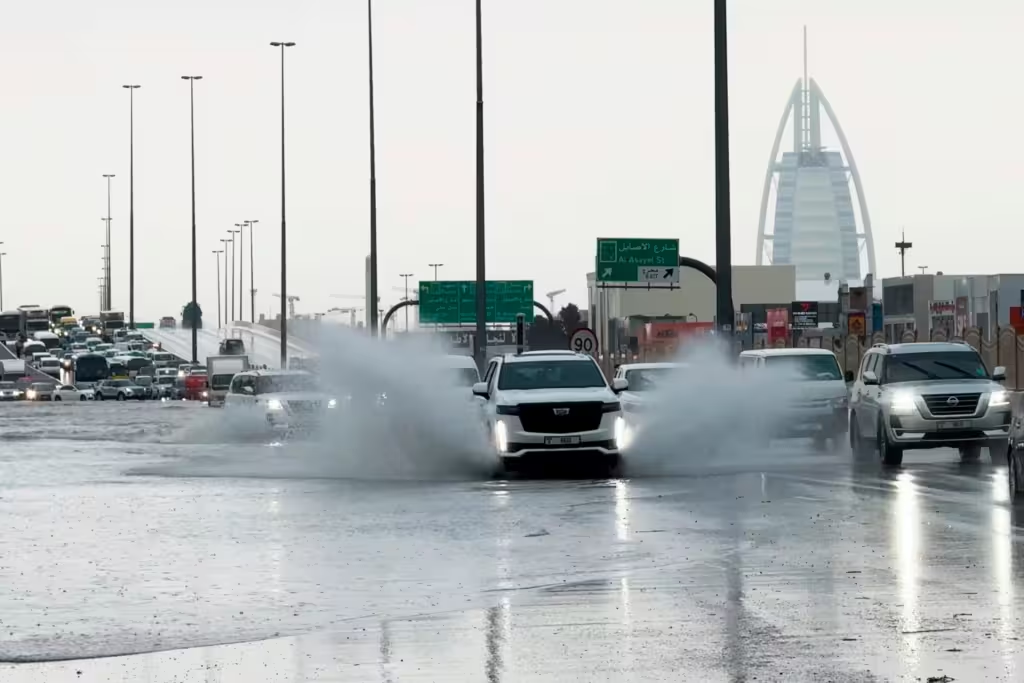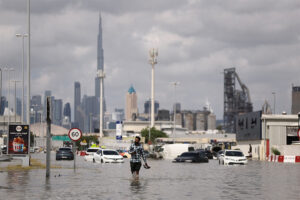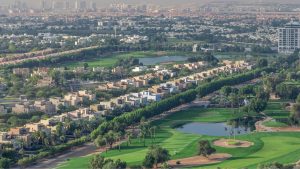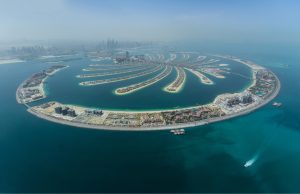In April 2024, Dubai faced an unprecedented natural calamity: a massive storm that brought record rainfall to the desert city. As floodwaters flooded highways, communities, and even Dubai International Airport, the city’s resilience was put to the test. Let us explore the effects of this storm on Dubai’s real estate sector, the government’s response, and its significance for the economy and investments.
Effects on Real Estate
Property Damage and Repairs
The storm caused significant damage to residential and commercial properties, underscoring the importance of robust property management strategies. Flooded roads, waterlogged basements, and structural issues disrupted daily life for residents and businesses. Developers swiftly offered free repairs to affected properties. Companies like DAMAC Properties promptly assessed the damage, emphasizing their commitment to ensuring seamless property management even in the face of adversity. The storm tested investor confidence in Dubai’s real estate market. However, the government’s proactive measures helped maintain stability and confidence:
- Free Alternative Housing: The Dubai government provided free alternative housing to those affected by the storm.
- Food Distribution: As roads were flooded, making it difficult for food to get to some communities, the city distributed food to places that were hit the hardest. Local businesses also offered free meals and water to provide some relief during a difficult time.
- Infrastructure Restoration: The Dubai Land Department and the Real Estate Regulatory Agency (RERA) coordinated with property developers to speed up the restoration of communities.
Government Response and Importance
Leadership and Crisis Management
Under the leadership of H.E. Sheikh Hamdan bin Mohammed bin Rashid Al Maktoum, Crown Prince of Dubai, the city swiftly implemented emergency measures to mitigate the storm’s impact. The Supreme Committee of Crisis and Disaster Management in Dubai, chaired by H.E. Sheikh Mansoor bin Mohammed bin Rashid Al Maktoum, played a pivotal role in coordinating efforts across various sectors. H.E. Sheikh Hamdan’s commendation of Dubai’s society for its resilience and cohesiveness underscored the collective spirit that drove the city’s response to the crisis.
What Lies Ahead for Dubai’s Real Estate Market?
The 2024 storm in Dubai was a severe test for the city’s real estate sector and its overall resilience. Despite the unprecedented natural disaster, the emirate’s real estate market showed remarkable resilience and a swift recovery, buoyed by efficient property management practices and the government’s proactive response.
The storm brought significant property damage, but the government’s quick response, including providing free alternative housing and distributing food to affected communities, significantly mitigated the damage. Dubai’s real estate market, a key component of its economy, remains strong and attractive to investors. The government’s efficient response demonstrated the city’s preparedness and its ability to overcome such challenges, making it an even more attractive investment destination.
Looking ahead, Dubai’s real estate market is poised for sustained growth, underpinned by its safe haven status, economic resilience, and strategic initiatives. Investors and residents alike can anticipate a dynamic and evolving landscape as the city continues its journey back to normalcy, guided by the lessons learned from the storm and its aftermath.










